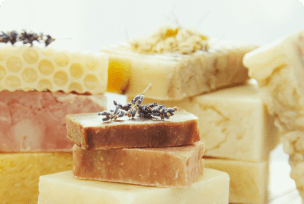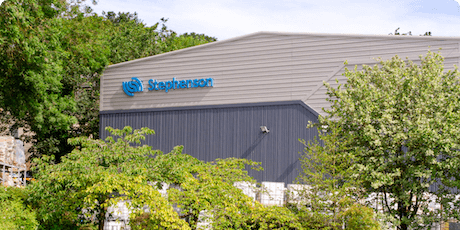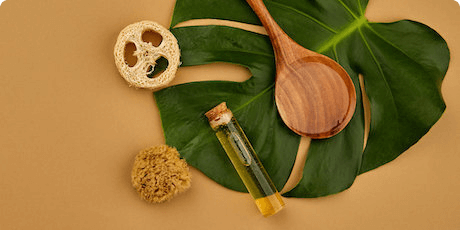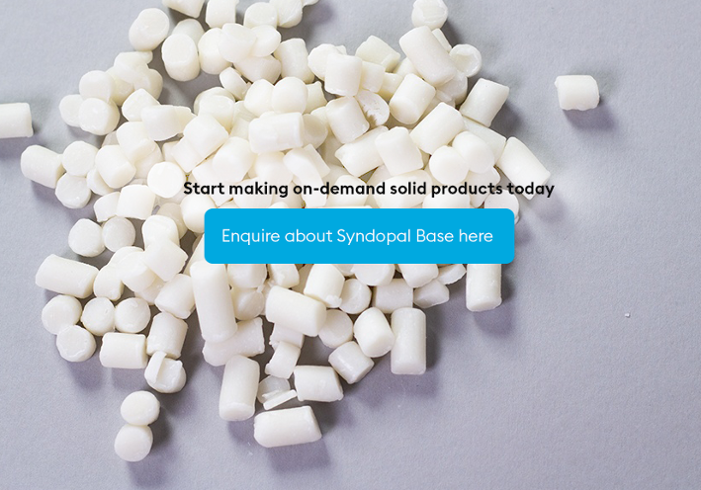Tim uses data and trends from the likes of market-leading brands, manufacturers and research companies to understand where customers should focus on future new product development.
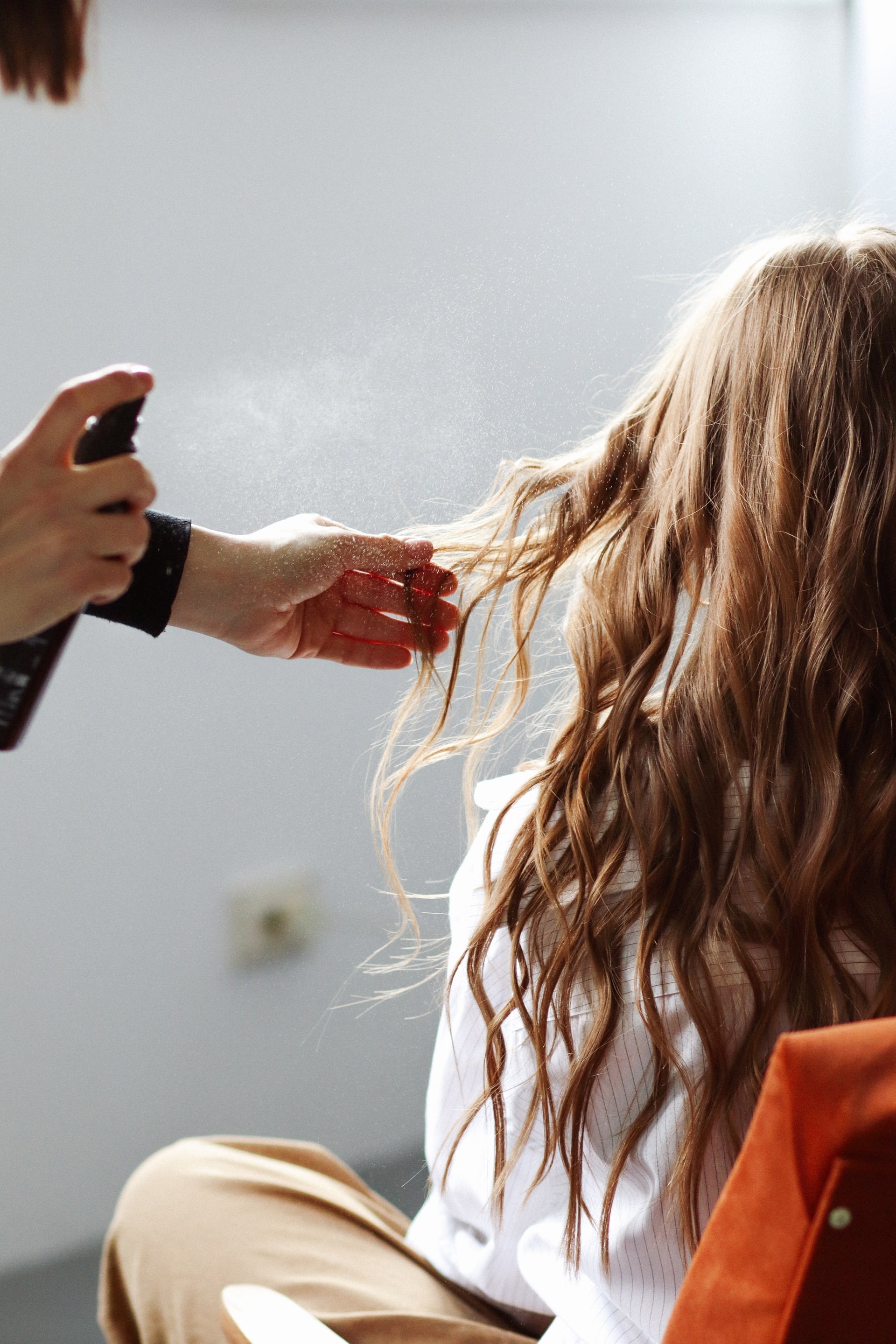
The multi-billion dollar global market comprises a seemingly endless range of products ranging from shampoos and conditioners to colouring treatments, serums, waxes, oils and sprays all produced featuring an array of natural and synthetic ingredients to achieve a healthy and well maintained head of hair. Healthy, good looking hair is crucial to an increasingly image-conscious population, both young and old. Witness the recent high profile headlines surrounding haircare in lockdown and the clamour for treatment once hairdressers salons and barbers were allowed to re-open. Stories of black market haircuts that not only broke social distancing guidelines but were also charging up to five times as much as under normal conditions were rife. The haircare industry is big business and the desire to look good is the driving force behind consumer willingness to invest in quality products.
Mintel’s ‘A year of innovation in haircare’ report published in April this year highlights that despite a challenging start to the year because of Covid-19, global opportunities are there for the taking for ambitious brands, forcing them to adapt and change to cater for a varied range of consumer needs. There is also potentially great scope for new and exciting NPD.
 Opportunities are there for brands and manufacturers to develop more specialised haircare products in direct response to catering for changing haircare needs during and post-COVID-19. As many consumers were faced with the dilemma of embracing rapidly greying hair or growing it during lockdown this presents great opportunities for formulators to help consumers manage and maintain their hairstyles. Meeting the haircare needs of a growing multicultural population and targeting younger consumers also represent great growth market potential. Encouraging self-care pleasure from haircare rituals and helping consumers unwind and relax during a pandemic also presents good opportunities for formulators to experiment with scents designed to lift moods and soothing colours. In the UK, 38% of female haircare product users agree that it is important that their haircare products make their hair smell good (Source: Lightspeed/Mintel).
Opportunities are there for brands and manufacturers to develop more specialised haircare products in direct response to catering for changing haircare needs during and post-COVID-19. As many consumers were faced with the dilemma of embracing rapidly greying hair or growing it during lockdown this presents great opportunities for formulators to help consumers manage and maintain their hairstyles. Meeting the haircare needs of a growing multicultural population and targeting younger consumers also represent great growth market potential. Encouraging self-care pleasure from haircare rituals and helping consumers unwind and relax during a pandemic also presents good opportunities for formulators to experiment with scents designed to lift moods and soothing colours. In the UK, 38% of female haircare product users agree that it is important that their haircare products make their hair smell good (Source: Lightspeed/Mintel).
NPD can also benefit from a renewed hygiene focus pushing elements such as detox, cleansing and protection benefits for both hair and scalp.
The coronavirus crisis will undoubtedly drive further interest and awareness in eco and clean living trends. Issues such as climate change and provenance/local sourcing of products and ingredients will remain a key consideration for consumers who have had a long time to ponder issues such as transparency and safety.
Mintel indicates that haircare brands will be increasingly scrutinised for their water usage (eg in formulas and during the hair washing) and eco credentials, as media attention continues to focus on climate change and global warming, thus keeping consumer awareness of the issues at a maximum.
For haircare and beauty brands, this trend is driving eco-friendly and affiliated natural/ethical NPD. Solid formats products are currently niche at less than 1% NPD. Eco-friendly haircare NPD is most active in North America and rising in both Latin and North America, as brands react to the backlash on waste reduction and global warming.
Eco-friendliness may not currently be a top haircare purchase driver, but as with other products this is likely to change over the the coming years given the focus on sustainability, adverse media coverage and attitudes towards plastic waste.
Brands breaking new ground in hair care and eco-friendliness
In sustainability terms, haircare is sadly one of the beauty sector’s serial offenders. Research carried out by the University of Southampton claimed that hair-washing produces the largest carbon footprint in comparison with other daily beauty and cosmetic-type routines, such as skincare and make-up application.
With water preservation being such a topical environmental issue, innovation around reducing water usage in beauty products presents new opportunities for product development. Working with tech start-up Gjosa, L’Oreal has developed a salon shampoo and low-flow shower head system, drastically cutting the water and energy required for a salon-quality shampoo service by almost 70%. The shower head breaks up the flow of water by accelerating the speed of the droplets, while the easier-to-rinse shampoo is applied directly through the shower head, rather than to the scalp.
 Unilever-owned Sundial Brands is specifically targeting Generation Z multicultural women with a new edgy and affordable brand, Emerge for Naturals. It’s six-piece ‘clean beauty’ range uses pequi oil and almond milk to nourish and care for textured hair.
Unilever-owned Sundial Brands is specifically targeting Generation Z multicultural women with a new edgy and affordable brand, Emerge for Naturals. It’s six-piece ‘clean beauty’ range uses pequi oil and almond milk to nourish and care for textured hair.
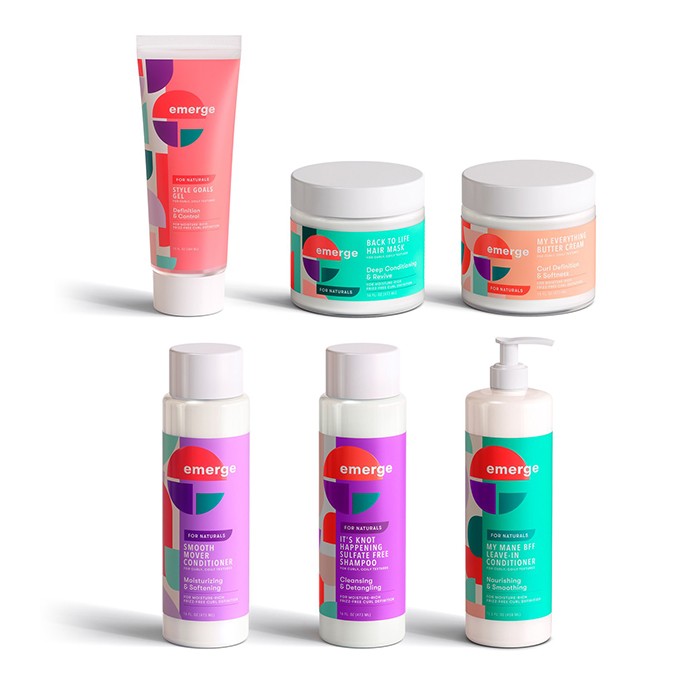 > Braziian beauty brand, Reload Beleza Positiva uses discarded plastic water bottles making full use of the ‘circular economy’ via a partnership with Água Mineral São Lourenço. It has become the first brand to offer high quality vegan shampoo and conditioner packaged in water bottles. The idea is simple and proposes that products considered disposable return to the production chain. Água Mineral São Lourenço’s disposed water bottles are collected directly from the venues where they are sold such as bars, hotels and restaurants. The company then developed and patented a new sanitizing technique to clean all collected bottles, which are then reused to package Reload’s products.
> Braziian beauty brand, Reload Beleza Positiva uses discarded plastic water bottles making full use of the ‘circular economy’ via a partnership with Água Mineral São Lourenço. It has become the first brand to offer high quality vegan shampoo and conditioner packaged in water bottles. The idea is simple and proposes that products considered disposable return to the production chain. Água Mineral São Lourenço’s disposed water bottles are collected directly from the venues where they are sold such as bars, hotels and restaurants. The company then developed and patented a new sanitizing technique to clean all collected bottles, which are then reused to package Reload’s products.

![]()
A solid future
Eco and natural claims are on the rise in many new product launches. According to Mintel, 34-62% of soap, bath and shower launches in Europe in 2018 had a natural (62%) or eco (34%) claim.
Combi bar formulations also present opportunities for creating milder products that are more natural and milder on the skin. These can also benefit for tapping into applications for hair removal, adults V-zone etc.
Syndet bases, like Syndopal can be easily mixed with existing extruded soap bases to produce combi bars. Multipurpose products are just one way to appeal to customers, especially those that need solutions for the post-workout product applications or travelling applications with products such as 2-in-1 body bars, deodorising sports bars and solid shampoo and conditioner.
Syndet bases are milder than most of other soaps, due to them being ph neutral, thus producing very good multipurpose applications for solid shampoo bars and face cleansers, body bar and other applications.
Formulating for sensitive skin
There is a worldwide opportunity in this sector, but especially in the APAC region with 35% of buyers of soap, bath and shower products in China willing to pay more for products free from certain ingredients (eg soap, alcohol and ‘free from’ formulas).
Syndet bar formulations are perfectly addressing this demand for this niche market with mild product formulations and ph neutral features.
Syndet bases, like Syndopal 300-MB provides an advantage for creating solid shampoo and body bars and beauty bars as it doesn’t require specialist equipment. It offers eco packaging opportunities and aligns with consumer trends for ultra mild scalp and haircare applications. Its sustainably sourced, low water and biodegradable formulation also benefits from 100% soap-free, ph neutrality, high foaming, and non-irritant claims. Syndopal base is also safe to use around the eyes, on children and lasts 2.5x longer than liquid shampoo alternatives.
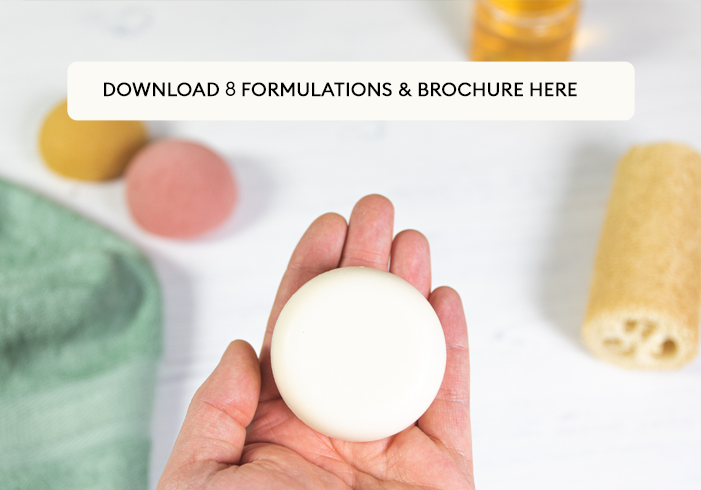 Syndopal opens up the growing market sectors to cosmetics manufacturers who would not have been able to manufacture syndet bars previously. It enables the creation of new business opportunities and products, with less or no-packaging and the chance to improve a brand’s environmental credentials.
Syndopal opens up the growing market sectors to cosmetics manufacturers who would not have been able to manufacture syndet bars previously. It enables the creation of new business opportunities and products, with less or no-packaging and the chance to improve a brand’s environmental credentials.
For more information on solid shampoos and technical details, please click the link below.












